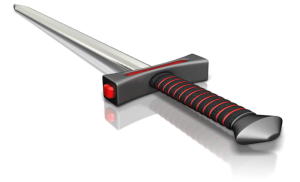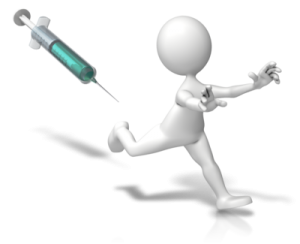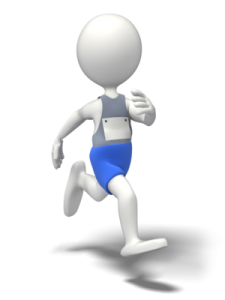- Furlan AJ, Reisman M, Massaro J, et al. Closure or medical therapy for cryptogenic stroke with patent foramen ovale. N Engl J Med 2012; 366: 991–
A multicenter, randomized, open-label trial of closure with a percutaneous device, as compared with medical therapy alone, in patients between 18 and 60 years of age who presented with a cryptogenic stroke or transient ischemic attack (TIA) and had a patent foramen ovale. The primary end point was a composite of stroke or transient ischemic attack during 2 years of follow-up, death from any cause during the first 30 days, or death from neurologic causes between 31 days and 2 years.
Results:
Primary end point was 5.5% in the closure group as compared with 6.8% in the medical-therapy group (adjusted hazard ratio, 0.78; 95% confidence interval, 0.45 to 1.35; P = 0.37)
Conclusion:
“In patients with cryptogenic stroke or TIA who had a patent foramen ovale, closure
with a device did not offer a greater benefit than medical therapy alone for the
prevention of recurrent stroke or TIA”
- 2 Saver JL, Carroll JD, Thaler DE, et al. Long-term outcomes of patent foramen ovale closure or medical therapy after stroke. N Engl J Med 2017; 377: 1022–
A multicenter, randomised, open-label trial ,randomly assigned patients 18 to 60 years of age who had a patent foramen ovale (PFO) and had had a cryptogenic ischemic stroke to undergo closure of the PFO (PFO closure group) or to receive medical therapy alone (aspirin, warfarin, clopidogrel, or aspirin combined with extended-release dipyridamole; medical-therapy group). The primary efficacy end point was a composite of recurrent nonfatal ischemic stroke, fatal ischemic stroke, or early death after randomisation.
Results:
Recurrent ischemic stroke occurred in 18 patients in the PFO closure group and in 28 patients in the medical-therapy group, resulting in rates of 0.58 events per 100 patient-years and 1.07 events per 100 patient years, respectively (hazard ratio 0.55; 0.31 – 0.999; P = 0.046)
Conclusion:
“Among adults who had had a cryptogenic ischemic stroke, closure of a PFO was associated with a lower rate of recurrent ischemic strokes than medical therapy alone during extended follow-up.”
- Meier B, Kalesan B, Mattle HP, et al. Percutaneous closure of patent foramen ovale in cryptogenic embolism. N Engl J Med 2013; 368: 1083–
A prospective, multicenter, randomised, event-driven trial, randomly assigned patients to medical therapy alone (anti-platelet or warfarin therapy) or closure of the patent foramen ovale.
Results:
9 patients in the closure group and 16 in the medical-therapy group had a recurrence of stroke (hazard ratio with closure, 0.49; 0.22 – 1.11; P = 0.08). The primary analysis of the intentionto- treat cohort showed a nominal 51% hazard rate reduction with closure, but the reduction did not reach significance.
Conclusions:
” …there was no significant benefit associated with closure of a patent foramen ovale in adults who had had a cryptogenic ischaemic stroke.”
- Sondergaard L, Kasner SE, Rhodes JF, et al. Patent foramen ovale closure or antiplatelet therapy for cryptogenic stroke. N Engl J Med 2017; 377: 1033–
Multinational trial involving patients with a PFO who had had a cryptogenic stroke, randomly assigned patients to undergo PFO closure plus antiplatelet therapy or to receive antiplatelet therapy alone.
Results:
During a median follow-up of 3.2 years, clinical ischemic stroke occurred in 6 of 441 patients (1.4%) in the PFO closure group and in 12 of 223 patients (5.4%) in the antiplatelet-only group (hazard ratio, 0.23; 0.09 to 0.62; P=0.002).
Conclusions:
“Among patients with a PFO who had had a cryptogenic stroke, the risk of subsequent ischemic stroke was lower among those assigned to PFO closure combined with antiplatelet therapy than among those assigned to antiplatelet therapy alone; however, PFO closure was associated with higher rates of device complications and atrial fibrillation.”
- Mas JL, Derumeaux G, Guillon B, et al. Patent foramen ovale closure or anticoagulation vs. antiplatelets after stroke. N Engl J Med 2017; 377: 1011–
In a multicenter, randomised, open-label trial patients 16-60 years of age who had had a recent stroke attributed to PFO, to transcatheter PFO closure plus long-term antiplatelet therapy, antiplatelet therapy alone or oral anticoagulation.
Results:
No stroke occurred among patients in the PFO closure group, whereas stroke occurred in 14 of the 235 patients in the antiplatelet- only group (hazard ratio, 0.03; 0 to 0.26; P<0.001). Large number of patients discontinued anti-coagulation in the anti-coagulant group and statistical significance was not analysed because the study was not adequately powered to compare outcomes.
Conclusion:
“Among patients who had had a recent cryptogenic stroke attributed to PFO with an associated atrial septal aneurysm or large interatrial shunt, the rate of stroke recurrence was lower among those assigned to PFO closure combined with antiplatelet therapy than among those assigned to antiplatelet therapy alone. PFO closure was associated with an increased risk of atrial fibrillation.”
- Lee PH, Song J-K, Kim JS, et al. Cryptogenic stroke and high-risk patent foramen ovale: the DEFENSE-PFO Trial. J Am Coll Cardiol 2018; 71: 2335–
Patients with cryptogenic stroke and high-risk PFO were divided between a transcatheter PFO closure and a medication-only group.
Results:
No events occurred in the PFO closure group. 12.9% of patients in the medication group had an event (p= 0.023).
Conclusion:
“PFO closure in patients with high-risk PFO characteristics resulted in a lower rate of the primary endpoint as well as stroke recurrence”





 Another day, another study published on the good or bad about metformin use in pregnancy. There is a lot of confusion and unknowns about the benefit or safety of metformin to the mother-to-be or to the long-term outcome of the baby. When there is a lot of conflicting data coming our way, we need to sit back and look at the overall picture of hyperglycaemia in pregnancy and its management before we can make sense of these studies.…
Another day, another study published on the good or bad about metformin use in pregnancy. There is a lot of confusion and unknowns about the benefit or safety of metformin to the mother-to-be or to the long-term outcome of the baby. When there is a lot of conflicting data coming our way, we need to sit back and look at the overall picture of hyperglycaemia in pregnancy and its management before we can make sense of these studies.…
